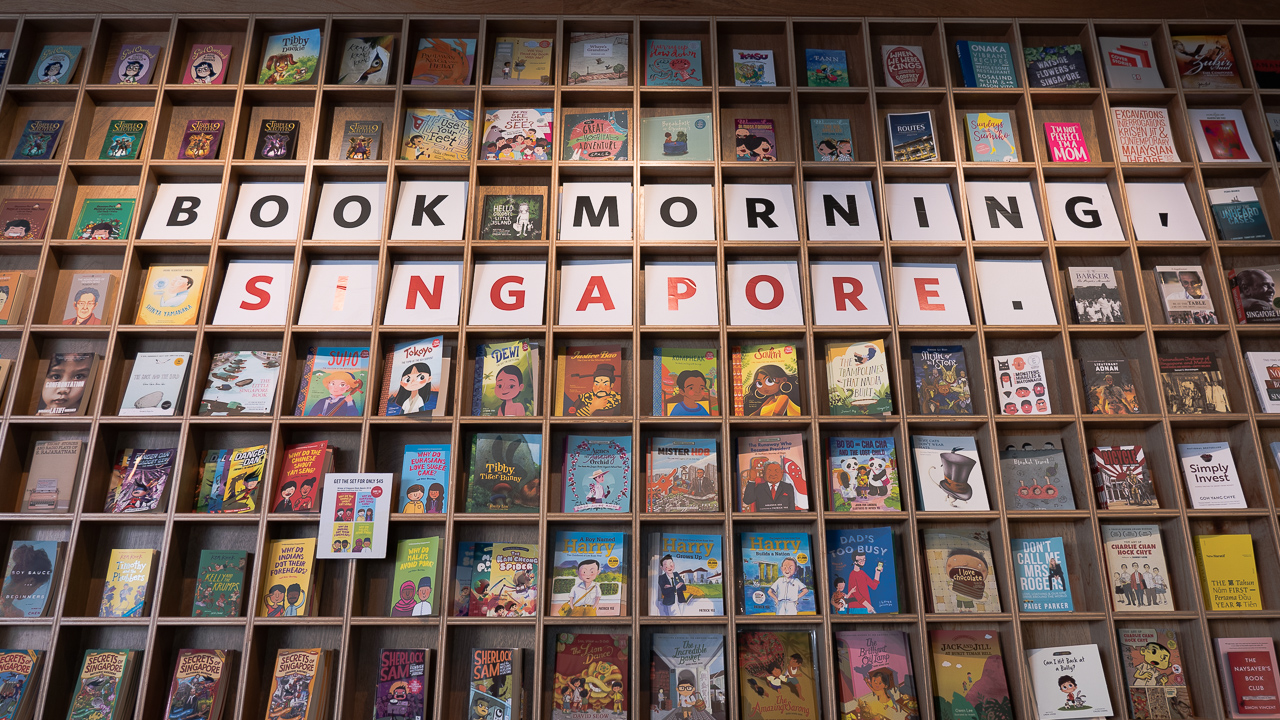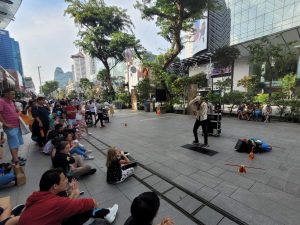All images by Zachary Tang and Cheryl Tang.
Kinokuniya. Times. MPH. Even Popular.
Bookstores in Singapore are closing at such a rate that, in a few decades, only the old will recognise these words. People will respond to them with the same nostalgic tilt of the head that mentions of DVDs or Heeren trigger in us today.
This is not a far-fetched dystopian future. Already, Kelly & Walsh, once the stalwart of bookshops in 20th-century Singapore—it was the first building on Raffles Place to be air-conditioned and was even visited by King Chulalongkorn in 1896—is all but forgotten.
And then there’s Page One. Harris. San Bookstore. Booktique.
Why are bookstores in Singapore in such dire straits? Are local conditions so hostile to books?
Or do Singaporeans just not read books?

As much as we might like to wallow in self-derogatory criticism about how the only culture Singaporeans have is of a bacterial nature, official statistics report otherwise. The National Library Board’s 2016 National Readings Habits Study found that almost 7 in 10 Singaporeans have read at least 1 book in the last 12 months—this is a higher proportion than in some Western European countries like Spain.
Industry players are likewise optimistic about reading habits here. Lim Li Kok, the founder and Managing Director of Asiapac Books, believes that more people are reading nowadays. While she acknowledges that online and social media form a large proportion of reading material, she also points out that books still have their value because “you need a printed document to stabilise the information”.
Moreover, book readers have a very different consumption pattern from other industries, Li Kok adds. It’s hard to produce a new cleansing liquid, for instance, so no one is constantly looking to make and buy a new type of soap. In contrast, readers are always looking to buy and read new books because each promises a different experience. A floral soap differs from a minty soap in scent and maybe sensation, but Lord of the Flies is completely distinct from the Lord of the Rings series.
Numbers certainly back her claim. Sales, revenues, and total number of publications across the world are still rising annually, despite detractors announcing the death of the book at the hands of social media, Netflix, or whatever new technological advancement.
In fact, Kenny Chan, senior store and merchandising director of Books Kinokuniya, says that the emergence of these new media has encouraged “new possibilities for bookselling, like YouTuber celebrity books, Instagram poets, game guides … [and streaming services highlight and sell books like] Handmaid’s Tale and Umbrella Academy”.
So far, so good. It seems that the bookselling situation in Singapore is thriving. So why are bookstores withering like our grass in a season of drought?
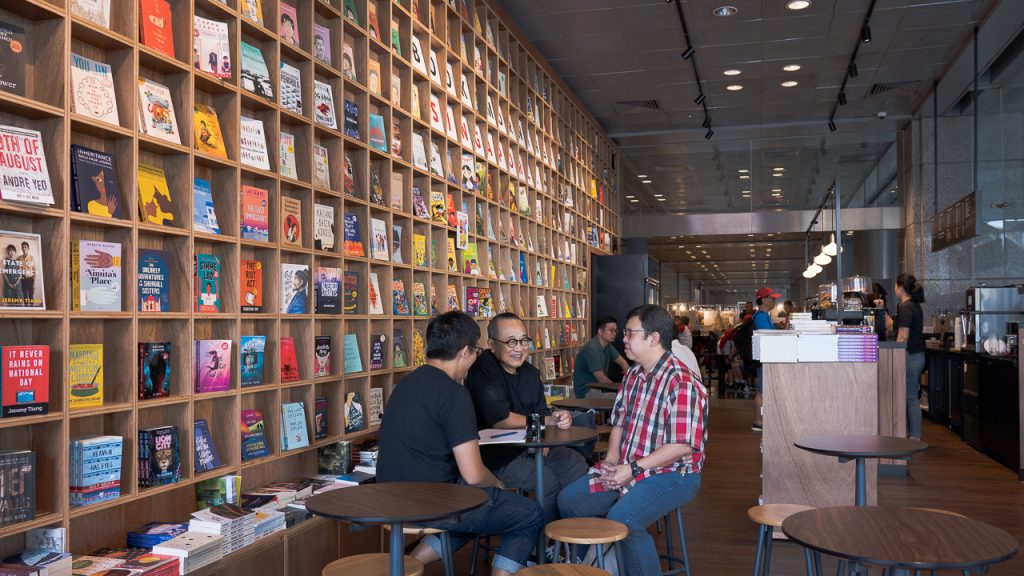
Admit it: you’ve walked into Kinokuniya, inhaled the smell of new books to rejuvenate your shriveled soul, eye-fucked the latest titles by Amanda Lee Koe or Margaret Atwood, only to return home to add them to your Book Depository cart.
The next day, when you read about MPH’s impending exit from the Singapore market, you beat your breast, wail, and write a moving eulogy about the inexplicable death of bookstores in Singapore.
I know you do this because I do it too.
Satirical self-incrimination aside, e-commerce—largely Amazon and its subsidiary, Book Depository—is cited as one of the biggest threats to bookstores in Singapore.
As Li Kok herself gushes, “They give you very good discounts … and you can buy at any time. At midnight if I suddenly wake up at 3 AM and dream of a book, I just click, and they will send it to me in 1 week.”
How can a conventional bookstore compete against such price and convenience? Realistically speaking, they can’t. At least not on these terms.
For one, brick-and-mortar bookstores have a corporeal body, unlike the ghostly existence of Amazon. By this I simply mean that Amazon does not need to pay rent at a prime area in Singapore—they can have a warehouse or office “at Woodlands, Changi, even in Malaysia, where they pay 1 ringgit per square foot for rental,” as Li Kok puts it, exaggerating for effect.
Everyone agrees this is the single most devastating cause of bookstores’ closures. Edmund Wee, founder and CEO of Epigram Books, says, “It’s not that Singaporeans don’t want to buy books. Bookshops are all closing because of the expensive rent.”
The manager of Asiapac Books, Chong Lingying, lays it out more plainly: “Everyone paying rent is dying.”
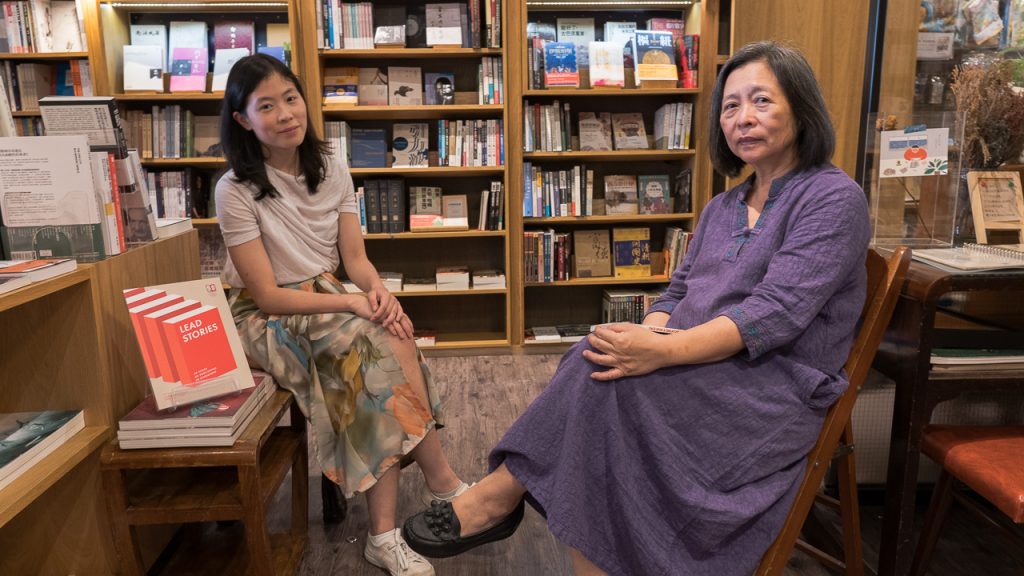
If Amazon were selling its books at the same price as local bookstores, the problem might not be so acute. But exacerbating it is the fact that Amazon’s prices are a lot cheaper than those in physical stores. For example, the Penguin Great Expectations is a whole $5 or 30% cheaper if you buy it from Book Depository instead of Kinokuniya.
Still, rent alone can’t explain the shocking discrepancy in price.
Lingying elaborates, “Publishers sell the same book at different prices in different markets. What Amazon can do is they buy books from the cheapest place, usually India, and sell it all over the world.”
Such a procurement strategy has led to the strange situation in which “international publishers in Singapore can actually find their book online on Amazon for cheaper than their staff rate”.
It’s not quite the same, but I imagine it must feel like someone breaking into your house and selling the cookies you’ve baked for your friends.
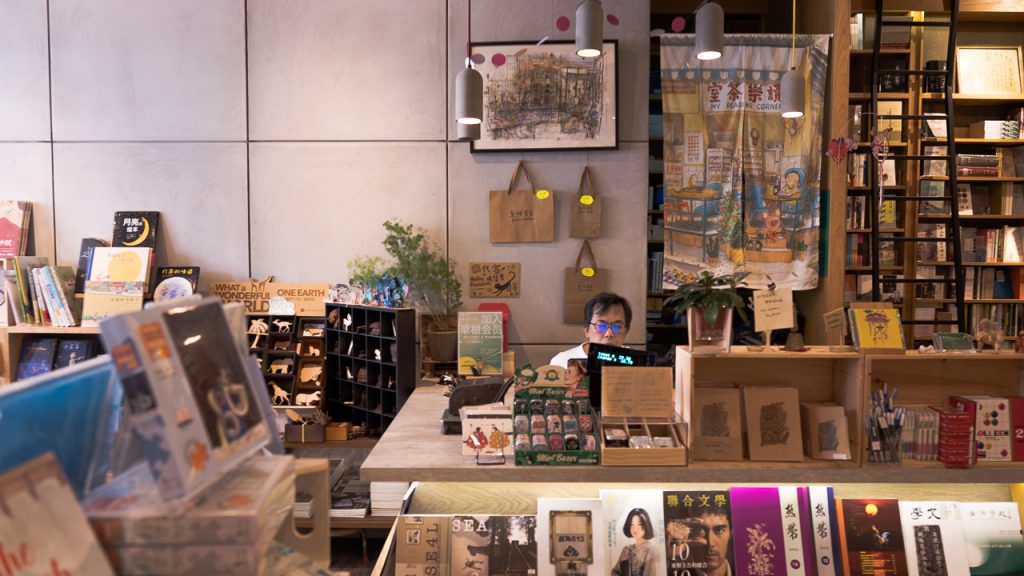
When faced with a nefarious cookie thief, what do you do? You try to nab the thief.
What if the thief has trained in a secret ninja school? Then you secure your house.
I might be pushing this terrible analogy too far—but from what I’ve gleaned from publishers, it seems that we are, paradoxically, throwing our doors wide open and teaching our dog to welcome said cookie thief.
In other words: our economic policies encourage the sort of barely legal market-loophole exploitation in which Amazon engages, to the detriment of our local bookstores.
From our Economics 101 classes, we all know that protectionism is bad. Just look at how the tariffs that the United States and China are lobbing at each other have depressed the international economy. On the other hand, free trade is good. It encourages competition, which in turn increases efficiency and lowers prices; the market, as a whole, benefits.
And where else is free trade more venerated, to an almost cult-like status, than export-oriented Singapore? Consumer goods from all over the world constantly flow in and out through our borders.
But some books we find on the shelves of bookstores, according to Edmund, “have no right to be sold here”.
“Books have territorial rights. If I publish an author, I have the Singapore or world right. In the case of America, most of them only have US right, so the book cannot be sold in Singapore. But because Singapore signed a free trade agreement, we have an open market, and anybody can bring in anything here.”
So you know how, in Kinokuniya , you’re sometimes confronted by two equally alluring but different covers of the same book? That’s because one is usually the US edition (e.g. published by Simon & Schuster) and the other the UK edition (e.g. Penguin). These migrant books are known as parallel imports or grey products because of their murky copyright and intellectual property statuses in international markets.
Edmund elaborates: “Technically, if they want to sell their book, they have to look for a Singapore publisher. They have to come to me and say, ‘Can you publish my book for Singapore?’”
But because of our FTA and open market, parallel imports are allowed. Local publishers are thus deprived of an enormous source of potential business. This has a knock-on effect on bookstores, because their profit margins on parallel imports are typically lower than books that are published locally, which partly explains why it’s becoming more difficult to survive as a bookstore in Singapore.
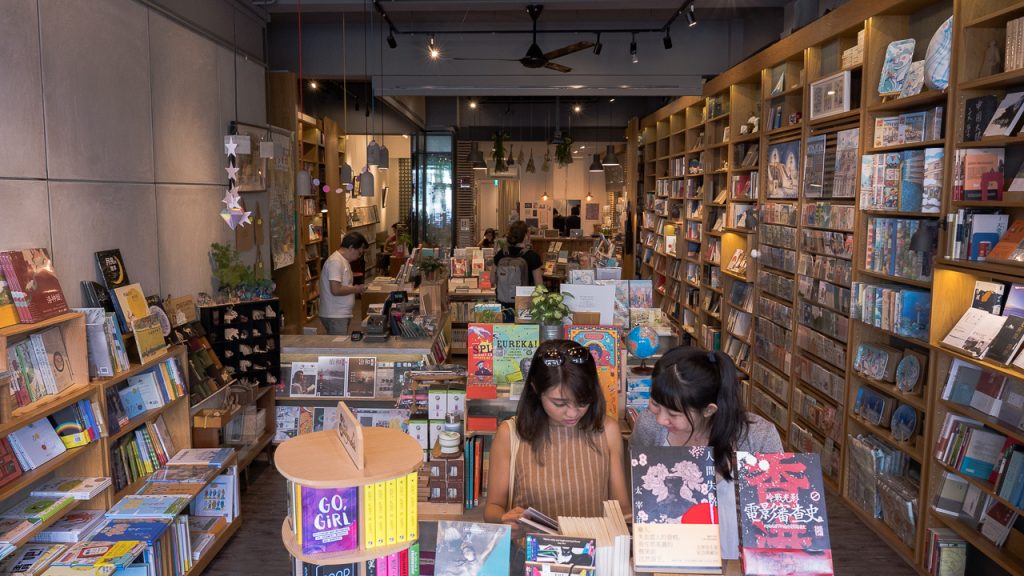
The most damaging factor to bookstores, however, is perhaps not Amazon, or parallel imports, but government-enacted economic policies that reduce the profit of bookstores to a “razor thin” margin, as Kenny shares.
One of them is our perennially favourite topic: the Goods and Service Tax (GST).
“In most countries, if you buy books, you don’t have to pay GST. In Singapore, you have to pay GST. Singapore’s a minority. It’s something that must be recognised by the policymakers because their policies have killed the book industry as much as real estate,” explains Lingying.
Indeed, a study by the International Publishers Association states that, “Globally, special VAT/GST/Sales Tax treatment for publications is the norm, not the exception, among the countries with VAT/GST/Sales Tax regimes. The large majority (84%) of the countries surveyed, established a favourable tax regime for paper books.”
For instance, Japan’s standard sales tax rate is 5%, but books are entirely exempted from tax. The price reduction is even more dramatic in European countries. Norway’s 25% tax does not apply to books, so books are, in effect, permanently 25% cheaper than they should have been.
Out of the 88 countries surveyed, only 13—including Singapore—do not have a reduced rate or tax exemption for books, putting us in the company of Bosnia, Yemen, Namibia, Peru …
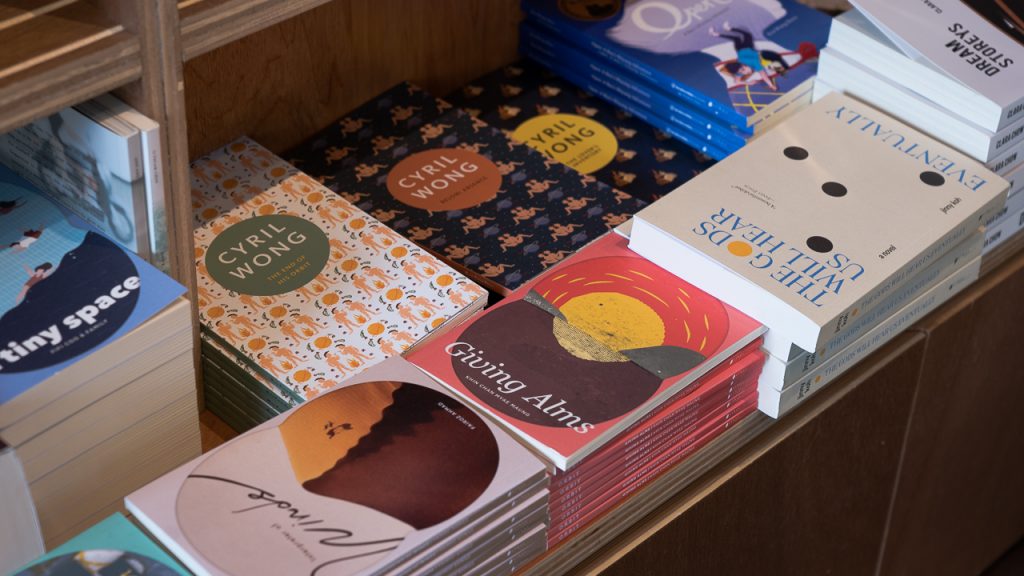
As if that weren’t bad enough, section 34 of Singapore’s Competition Act prevents the bookselling association from fixing prices.
Lingying explains that because almost all books sold in Singapore are imported—which means their prices are subject to fluctuating currency exchange rates—“in the past, the Singapore Book Publishers Association used to set a standardised exchange rate for the book industry”.
“So that means Kino and MPH would sell the same book at the same price. But it didn’t kill competition—bookstores would compete in different ways.”
For example, Li Kok’s bookstore, which she ran from 1976 to 1987, offered a ‘buyback service’ to her customers, in which she helped readers resell their books and kept 20% of the proceeds.
“This extra service made us a very popular shop,” she recounts.
“But after they didn’t allow foreign exchange rate standardisation anymore,” Lingying continues, “One guy will sell at 13.90. The other guy will be like, ‘Oh shit I’m going to make losses here. But I’m going to sell it to you at 13.50.’ Then they start killing each other—they start having this kind of price discrepancy that leads to price competition.”
Li Kok adds: “When things are not controlled, the ones who got the cheapest gets all. It was a shock to us. When we had an association, one of the roles is that we standardise the exchange rate. After the law was enacted, if we discuss, we’re committing a crime. So we sit together and look at each other. The world has really changed.”
On paper, the lack of price fixing sounds great: a free market leads to competition and increased efficiency and lower prices, etc., etc., ad infinitum. In reality, the lack of control is precisely what is causing this chaotic market imbalance.
The book industry in other countries is highly regulated. Book prices are standardised—it’s why, at the back of any international edition of a book, you find that little box (noticeably absent on Singapore-published books) stating the price of the book in various currencies. Bookstores are obligated to sell the books at these prices, no more no less.
In countries like Japan, bookstores are not even allowed to give discounts on books. Meanwhile, in Singapore, we have shops that run eternal sales.
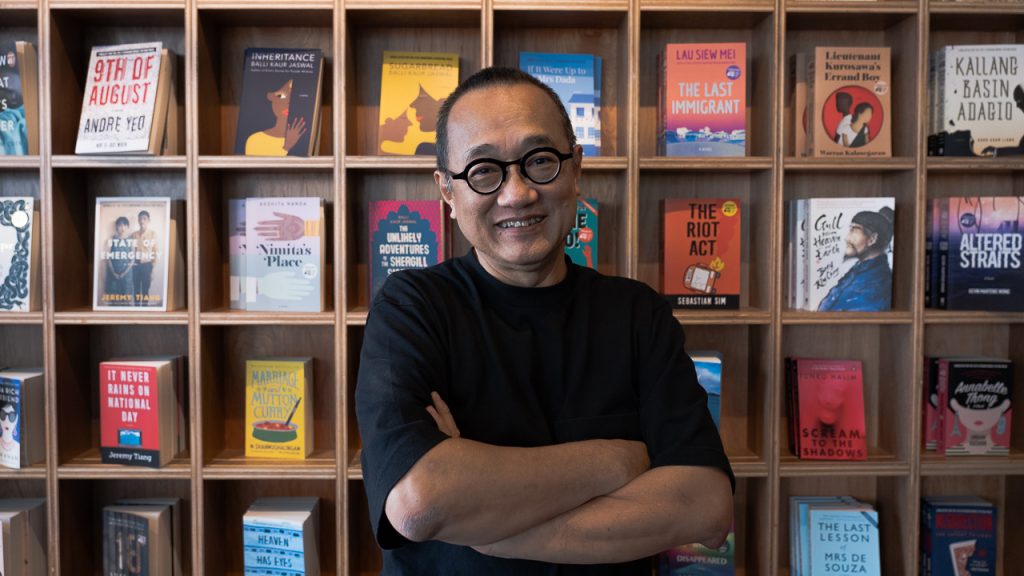
Such measures to control the market might seem draconian or economically illiberal. But books aren’t just inert consumer goods. Books serve as cultural artifacts that reify the identity of a nation; they have positive externalities in their potential to generate “broader society benefits in the form of education, [literacy,] … higher rates of political participation,” and so on.
These reasons justify the National Arts Council’s dispensation of grants to authors, publishers, and arts organisations in general.
Why not grants for bookstores too, then?
This is precisely what Edmund asked: “I told the government, bookstores are closing down everywhere … But you cannot have a city without bookstores—bookstores are so critical to the cultural life of a nation … How about you subsidise me? I open a bookshop, but in order to justify your subsidy, I sell only Singapore books.”
“The government said no.”
Their response, Edmund explains, is that bookstores are a commercial entity, and the government cannot subsidise a private enterprise. But he is clearly frustrated when he points out that publishing and writing a book are also commercial—yet these acts are the recipients of governmental money.
“What is the logic here? … I believe the circle should be completed. You write, you publish, [but if] you can’t sell, then what’s the point?” he grumbles.
To be clear, booksellers and publishers aren’t looking for handouts or an easy way to make a quick buck. Edmund is quick to point out, “You don’t become a publisher [or bookseller] to make money … The grant keeps you in the black. Without the grant we’re in the red. And we’ve been in the red for the last few years. But we carry on. For as long as we can. Until we run out of money, then we close shop.”
Lingying, too, stresses that she hopes for policies that “help companies to regulate market conditions”, not things like sporadic GST vouchers.
Even Kenny, director of the biggest (and most beloved) international bookstore in Singapore, thinks that “there should be measures to help booksellers as they are essential community hubs to promote literacy, culture, and beyond. Without the bookshop, new readers cannot be converted into lifelong readers as bookshops have done and is doing in the past and present.”
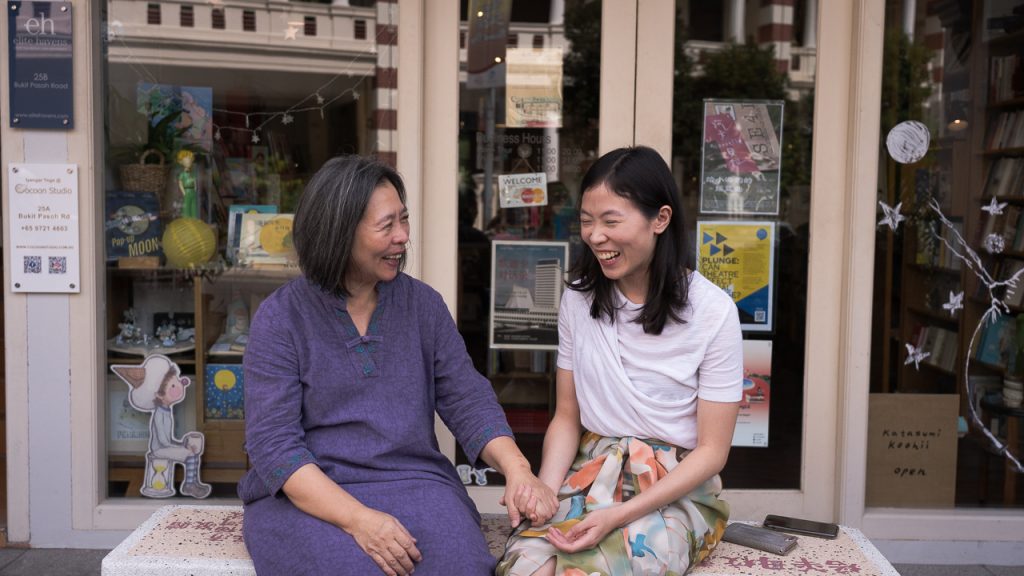
At the same time, bookstores should not be allowed to remain anachronistic artifacts stuck in the past. Like transport companies, they need to evolve with changing market conditions, stepping in time with new consumer demands and technological advances.
It is something booksellers are aware of. As Kenny alludes to in his response, bookstores are “essential community hubs to promote literacy, culture and beyond”.
In other words, they aren’t simply—and cannot afford to remain—commercial spaces. Bookstores have to play a refreshed role to crawl out of the shadow of Amazon.
Li Kok concurs: “You want people to come [to bookstores] to network. So you organise, every Saturday, a workshop, a discussion. People need to meet people. You can buy a book at any time. Buying books is not the primary objective [of visitors to bookstores] any more … Bookshops have to play a role where they become a cultural meeting place, a cultural forum … Because Amazon will not promote your culture, your local writer.”
More importantly, “patrons will buy a book immediately after an event”.
“That’s what BooksActually and Huggs-Epigram are doing … they use it almost like an event space,” Lingying observes—and she’s right.
Edmund says that, at Huggs-Epigram, “Every day we have AIA. Artist or author in attendance. They come here, they sit here, they spend the whole day to do their own work. But you can talk to them, buy them a drink …”
And hopefully buy their book.
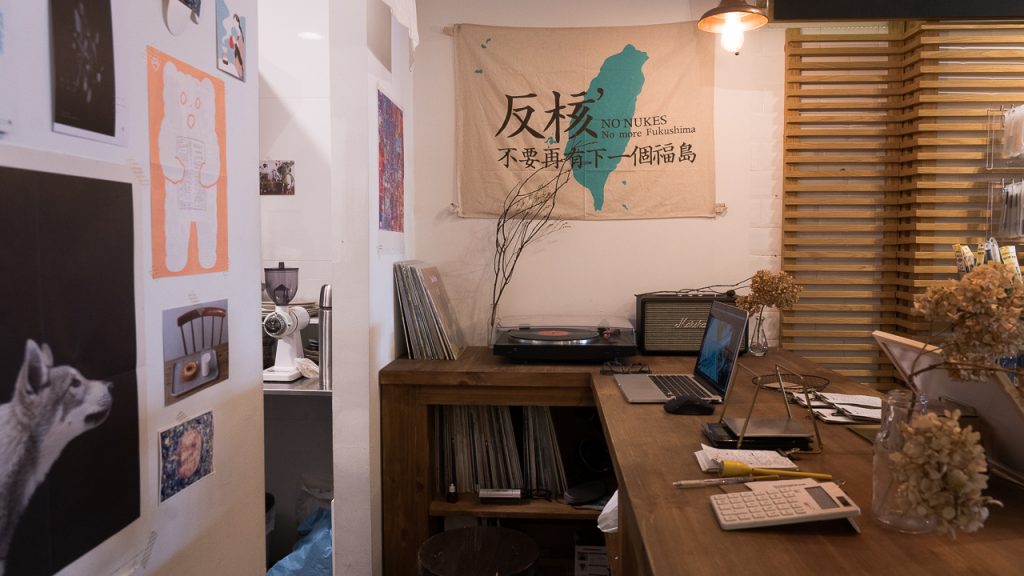
But let’s not be hypocrites. As consumers, we benefit from Amazon’s ruthlessness, from the free-market and anti-collusion conditions of Singapore’s economy. It is a buyer’s market, and we are the ones receiving said stolen cookies.
My own book-buying habits can be clearly demarcated into two phases:
- Ardent Kinokuniya fan who signs up for their membership annually and looks forward to the 20% sale with bated breath;
- My books all arrive in my mailbox in a Book Depository cardbox parcel.
Sure, we can try to change this habit and make a conscious effort to patronise brick-and-mortar bookstores, but it seems counterintuitive to encourage people to fork out more money to buy the same product. Even after hearing first-ear the difficulties that bookstores and publishers face, I’m not sure, honestly, how much my buying patterns will change, because I just don’t earn enough to justify spending $5 more on each book.
The only thing I’m certain of is that books will never die—naysayers have been predicting their death since the invention of the radio, the television, the smartphone …
What is less clear is the livelihood of our bookstores, which, at the moment, hangs by a thread.
The interview with Lim Li Kok and Chong Lingying was jointly conducted with Pan Jie; the interview with Edmund Wee was conducted by Pan Jie.
What are your happiest memories in bookstores? How can bookstores stay relevant today? Tell us at community@ricemedia.co

